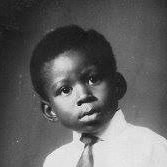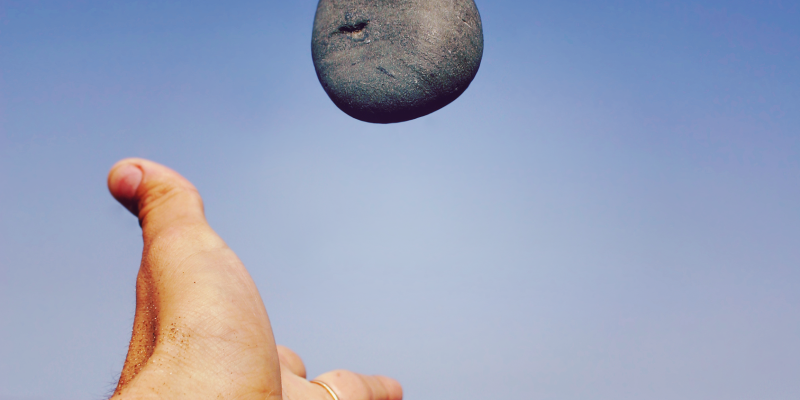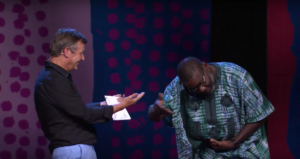In these two articles written in two parts, I examine my ongoing dilemma in confronting the moral relativism of the Nigerian society in which any and everything bad as opposed to good can be rationalized and justified. We have not so much as immoral as much as it is that we are AMORAL. Having lost our collective moral compass, anywhere is true North. Thirty years on I still struggle to maintain my moral bearings in a place where our moral degeneracy is all but complete. The moral dilemma of metaphorically ‘casting stones’ in today’s Nigeria seems so, so quaint.
As the story goes, the woman broken by fear and exhaustion laid on the ground cowering under the rage of an irate blood-thirsty mob. She would, she knew, be stoned to death.
But mercifully a distinct messianic voice cut through the murderous din of the crowd: “let he amongst you who is without blame cast the first stone”.
The crowd brusquely confronted with sanctimoniousness of their rage quietly dispersed. If that slice of biblical history were to be enacted (messiah and all) today in Nigeria, what would be the crowd’s reaction?
To be sure, that woman could be pulverized under the avalanche of stones, alongside possibly her rescuer, if he wasn’t careful. We wear our hypocrisy like a luminous stamp on our foreheads.
Gleefully fingering the speck in our brother’s eye, we fail to see, (or perhaps we don’t know), the burning forests of hypocrisy raging on in our eyes, in our words, and in our actions.
“Judge not, that ye may not be judged”, the Bible warns us. But who listens to anything these days, not to talk about a “kill-joy” like “the good book”.
We have become a nation of blame-throwers. Nobody is responsible to, and for, anything. It is never our fault when things go wrong.
Somebody or something else is always responsible for our woes. But of course our good fortunes can directly be attributed to us and no one else.
Nigerians are adept at throwing stones. They would readily pick up a boulder and haul at the fragile glass-house of another, intending to shatter and expose. But fail to hear that distinct shatter of broken glass that reverberates in a mirrored exposé of their own even more brittle edifices.
In a nation where its citizenry is caught up on a self-inflicting cross-fire of lies, duplicity, and more lies, hypocrisy becomes institutionalized. To be hypocritical is to be smart, to know the ropes, to play the game. And a game it is, with no abiding rules, no penalties, just the rewards of vice, ethnic chauvinism, and bloated aggrandizement.
Which as most affluent Nigerians would testify is plenty. Today, it would buy you beautiful women, magnificent houses, gold-plated cars, (and lately) luxurious private jets, and premium cocaine.
Accountability is not encouraged, and even in rare cases when the truth catches up with a culprit, he can always point his fingers at them, and say “they are responsible, not me”. Or quite simply deny the truth even in the face of over-whelming evidence. But the truth is an unwavering constant; it cannot be changed or hidden forever.
I am sure that society has enough evidence to indict all those liars and thieves who have through the years, masqueraded as leaders, statesmen, men of probity and patriots. But it will not, because society herself is equally guilty. The charade of going through the motions of justice is enough;why wash her dirty linens in public? Occasionally it is enough to flash dirty underwear to titillate our perverted sense of justice, but the bushels of filthy smelly clothing must be kept hidden away from prying moralistic eyes.
And so when our politicians/leaders mount the rostrum promising paradise, to a cynical public or point accusing fingers at “them” for their own irresponsibility and shortfalls, I shudder. Not only because of the mutually complimentary grand deception, but because I as an individual have been conditioned to accept the inequalities and inanities of the system as being part of the system.
And most privately I fear that my judgemental perception of good and bad, black and white, may ultimately be anesthetized to accept black, as grey.
TUNJI LARDNER for THE PUNCH, OCTOBER 1983



